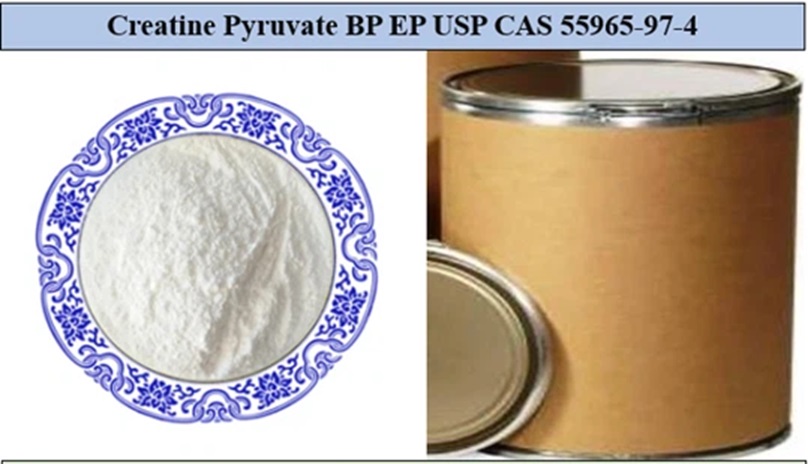We unleash your business potential by maximize the business innovation.
Send EmailCreatine Pyruvate, Pyruvate Creatine Complex, 55965-97-4
(CAS No. 55965-97-4)
A) Physical and Chemical Properties
-
Chemical Name: Creatine Pyruvate (Creatine + Pyruvic Acid salt)
-
Molecular Formula: C₇H₁₃N₃O₅
-
Molecular Weight: 219.20 g/mol
-
Appearance: White crystalline powder
-
Melting Point: >200 °C (decomposes)
-
Boiling Point: ~271.6 °C (760 mmHg)
-
Density: ~1.4 g/cm³ (estimated)
-
Solubility: Soluble in water
-
Storage: 2–8 °C, dry and sealed
B) Detailed Applications
-
Sports Nutrition: Enhances muscle strength, endurance, and recovery
-
Energy Metabolism: Supports ATP production via creatine and aerobic metabolism via pyruvate
-
Antioxidant Role: May reduce oxidative stress from intense exercise
-
Weight Management: Studied for fat metabolism and body composition benefits
-
Neuroprotective Research: Explored for synergistic effects in brain energy metabolism
C) Synonyms
-
Pyruvate-Creatine Complex
-
2-Oxo-propanoic acid Pyruvate-creatine mixt
-
N-(Aminoiminomethyl)-N-methylglycine mixt. with 2-oxopropanoic acid
-
Creatine Pyruvate Fusion
-
CAS: 55965-97-4
D) Production Method
-
Reaction of Creatine with Pyruvic Acid:
Creatine+Pyruvic Acid→Creatine Pyruvate\text{Creatine} + \text{Pyruvic Acid} \rightarrow \text{Creatine Pyruvate}
-
Crystallization and drying
-
Typically formulated as 60% creatine + 40% pyruvate by weight
E) Alternative Products
-
Creatine Monohydrate – Most studied and cost-effective
-
Creatine Citrate – Better solubility, higher cost
-
Calcium Pyruvate – Used in fat metabolism and weight loss
-
Creatine HCl – High solubility, limited data
-
Beta-Alanine, HMB – Non-creatine performance enhancers
F) Common Names
-
Creatine-Pyruvate Blend
-
Energy Complex
-
Muscle Power Salt
-
Endurance Creatine
G) Reactions
-
In Acidic Stomach: Dissociates into creatine and pyruvic acid
-
Creatine: Converts to phosphocreatine → ATP regeneration
-
Pyruvate: Enters TCA cycle → aerobic energy production
-
Antioxidant Action: May scavenge free radicals
-
Plasma Creatine Uptake: Higher than monohydrate in some studies
